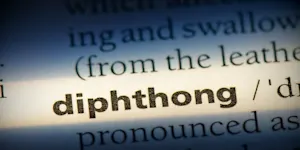What Makes This Word Tick
"Chthonic" is a word that delves deep into Greek mythology and the underworld. It's used to describe things that are related to the earth or the underworld, embodying the mysterious, shadowy realms below us. This word is often associated with ancient deities and spirits that dwell beneath the surface, reflecting a sense of ancient mysteries and dark allure.
If Chthonic Were a Person…
Chthonic would be that intriguing character at a dinner party who knows a bit about every ancient myth and legend. They’d have an understated, yet compelling presence, much like their whispers of forgotten tales and hidden depths. Think of them as a sage who enjoys the silence of libraries and has an impressive collection of gothic stories.
How This Word Has Changed Over Time
Originally used to convey connections to the Greek underworld, "chthonic" has maintained its root meaning over the centuries. However, it's now often used metaphorically to describe any aura of mystery or the darker, more primal aspects of nature and human emotion.
Old Sayings and Proverbs That Use Chthonic
While there aren't ancient proverbs that explicitly use "chthonic," the concept is woven into many sayings about the Earth's wisdom and the spirits below. It captures age-old beliefs in the grounding yet mysterious powers of the natural world.
Surprising Facts About Chthonic
Here's an enticing tidbit: "chthonic" is often used in Kantian philosophy to discuss ideas grounded in intuition rather than abstract knowledge—a kind of inferred wisdom. Plus, it’s a favorite among crossword puzzle creators due to its tricky spelling and unusual letter combinations.
Out and About With This Word
You’ll find "chthonic" featured in discussions about literature, mythology, and even geology. It pops up in critiques of Lovecraftian horror, where ancient and hidden terrors lie in wait just beneath the surface of the earth.
Pop Culture Moments Where Chthonic Was Used
In pop culture, "chthonic" could easily describe elements of fantasy fiction and films that explore the darker sides of worlds, such as the rich tapestry of H.P. Lovecraft's tales. The term captures the essence of the mysterious and the otherworldly often found in such narratives.
The Word in Literature
"Chthonic" would comfortably nestle within the pages of gothic novels, dark fantasy, and mythological retellings. It brings to mind authors like Neil Gaiman or H.P. Lovecraft, who explore themes of ancient gods and spirits lurking beneath the world we know.
Moments in History with Chthonic
Think of the ancient Greeks and their elaborate mythologies that explored the afterlife and subterranean gods. "Chthonic" perfectly describes their perception of the world beneath, where powerful forces and divine figures influenced the world above.
This Word Around the World
In various cultures, similar concepts to "chthonic" can be found—such as references to Yomi in Japanese mythology or Xibalba in Mayan lore, both mysterious and powerful underworlds. It’s fascinating how different societies have woven their unique tales around the same idea of earthly depths.
Where Does It Come From?
"Chthonic" comes from the Greek word "khthonios," meaning "of the earth." It's deeply rooted in ancient language, reflecting humanity's enduring fascination with what lies beneath our feet.
How People Misuse This Word
Sometimes, "chthonic" gets tossed around simply to mean something ‘dark’ or ‘ominous.’ While not entirely off the mark, it misses the deeper connection to the earth and ancient mythologies that give the word its true power.
Words It’s Often Confused With
Cthulhu: Fans of Lovecraft’s work might mix these up; Cthulhu is a fictional cosmic entity, not a descriptor.
Chronic: A common mix-up in spelling, but "chronic" relates to time, not the earth's depths.
Catatonic: Both start with "c" and have a mystical ring, but catatonic describes a state of unresponsiveness.
Additional Synonyms and Antonyms
Synonyms include "subterranean" and "earthly," while its opposite might be "celestial," capturing the heavens above rather than the earth below.
Want to Try It Out in a Sentence?
Sure! "The archaeologists uncovered chthonic artifacts, relics that whispered of ancient deities and hidden rites of the earth."
















